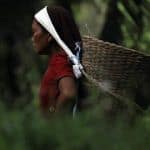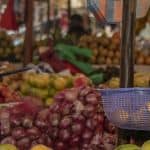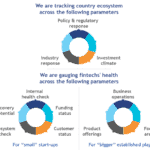1 Billion People Live in Informal Settlements Worldwide: Here are Seven Key Challenges They’re Facing During COVID-19
As the COVID-19 pandemic continues to overwhelm countries around the globe, it has transformed the way we live, work and even interact within our communities. A major part of this transformation are the full or partial lockdowns that most countries have undertaken to ensure that their citizens are safe. This “stay at home” legislation is based on the assumption that one’s home provides protection against contracting and spreading the virus.
However, this isn’t always the case – at least not for the most vulnerable communities in cities around the world. Globally, approximately 1 billion people are living in informal settlements/ encampments/slums. Among this 1 billion, approximately 238 million people are in sub-Saharan Africa. Even in the best of times, conditions in these informal settlements are often grossly inadequate. The communities are over-crowded, and families living there have no adequate water, sanitation or regular income. That leaves them unable to perform the main elements of COVID-19 prevention, like social distancing and hand washing.
To address these issues, various organizations are taking urgent actions to assist the families living in these communities, but most organizations are still testing the waters to see what works and what doesn’t. Some are adapting already-existing measures to better suit the crisis, but all are piloting and pivoting as they go. With most African countries facing similar challenges, from poor and ill-equipped healthcare systems to overrun informal settlements and congested public transport, there’s a great opportunity for these initiatives to learn from each other, within and across borders, to lessen COVID-19’s impact.
AVPA, in partnership with Sankalp Dialogues, kicked off a webinar series in April, to find out what various organizations across the continent are doing to #CrushTheCurve. The virtual convening is ongoing, and it aims to:
- Share examples of how program implementers are responding to the outbreak, ranging from preparedness to mitigation
- Hear from voices on the ground and discuss how best to address upcoming challenges and reduce their impact
- Share solutions that can be easily embraced and implemented effectively, efficiently and quickly
Before we could talk about what organizations are doing to address the pandemic’s challenges in informal settlements, we took some time to identify the most critical challenges for those living in Africa’s settlements. A few key issues came up during the conversation with Tunapanda Institute and Safe Hands Kenya in the first webinar, “Preparing Informal Settlements” – we’ll highlight them below. The issues introduced in this webinar informed the topics of our subsequent webinars.
Access to food
Most of the people living in informal settlements live hand-to-mouth. Due to COVID-19 lockdowns, businesses are either slow or at a standstill because the majority of the people living in informal settlements are day laborers. This translates to no cash to buy food for the family. Making matters worse, even for those who have saved up a little money, the current inflation in food prices – for instance, in Kenya – makes it hard to survive. The most common question that arose during the webinar was: Which is better, giving food directly to the families most affected, or giving them cash?
Security
In the face of unemployment and greatly increased stress levels caused by the pandemic, the level of insecurity is rising. This includes crime, gender-based violence and especially domestic violence, all of which are on the rise. Another form of insecurity involves the risk of COVID transmission, as people are often hiding the symptoms they have due to the stigmatization they may face.
Reduced income opportunities through loss of employment
As mentioned above, most of the individuals working in informal settlements are day laborers. With the economic slowdown and the need for social distancing, most workplaces that utilize day laborers have been forced to shut down and send people home until further notice. Additionally, most of the global development organizations and enterprises that might have provided support or employment for these workers are still trying to navigate the process of taking their businesses online – hence there are no work opportunities for informal workers.
Access to education
Most schools have moved their education to online platforms until further notice. However, some families living in informal settlements have no access to electricity, the internet or devices to enable e-learning. This inequitable access to online education will only exacerbate the gap between the poor and the rich.
Social distancing problems
Families living in informal settlements are faced by overcrowding on two fronts. Most of them have six or more individuals living in a small space, and the separate housing units in informal settlements are built closely together. Due to these factors, social distancing is impossible.
Information on COVID-19
There is so much information about COVID-19 being circulated from different sources that the truth about the virus has been obscured. One webinar participant suggested that there should be a specific messaging channel for individuals living in informal settlements, such as a community newspaper, or posters and fliers with essential and accurate information. Tunapanda Institute, an organization that participated as speakers in this webinar, is coming up with a digitized manner to spread this sort of information.
Access to health, water and sanitation
In any effort to provide relief to informal settlements, it is important to note that food is not the only necessity that most families lack. They also need access to health facilities – even medical expertise provided from a distance via telemedicine or phone consultations. Additionally, these families often lack water and sanitation, which are essential to preventing the spread of the virus. Some organizations are responding to those needs, including Safe Hands Kenya, which was formed in March 2020 by an alliance of Kenyan companies to deploy free hand sanitizers, soap, face masks and surface disinfectant to the families in Kibera (the largest slum in Nairobi) as a first line of defense against COVID-19.
As development organizations, businesses and local governments try hard to flatten the curve, people in informal settlements will continue to bear the hardest economic impact – and we don’t know for how long. So the broader question of what we can do to provide adequate support to families in informal settlements will lack a conclusive answer: It will depend on what the future holds as Africa, and the world, continue to navigate these challenging times. Upcoming webinars in our “Crushing the Curve” series will explore emerging solutions to many of the challenges highlighted above – stay tuned.
Margaret Nakunza is an Associate at Intellecap.
Photo courtesy of FMSC.
- Categories
- Coronavirus



